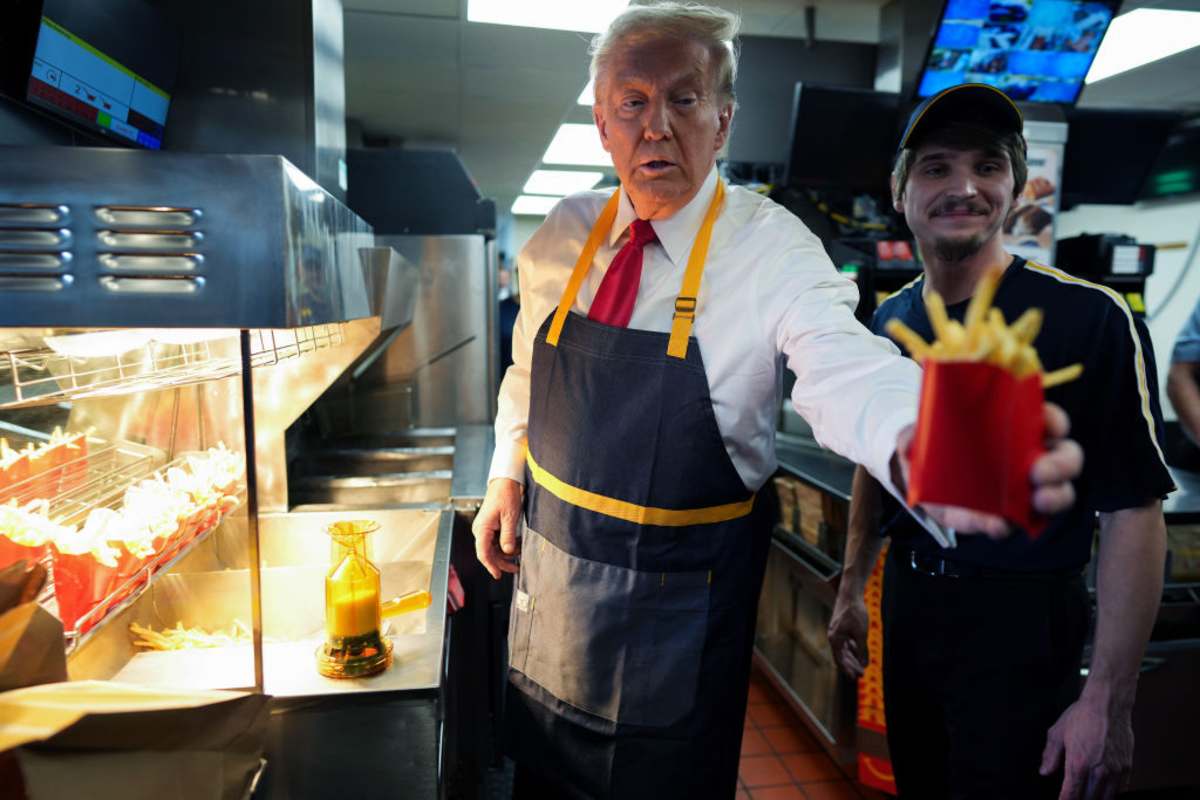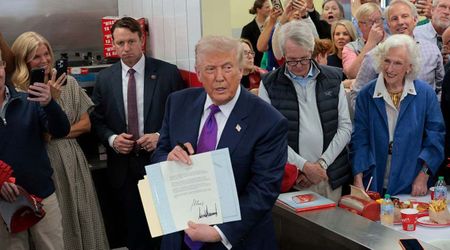Expert lists 3 major lifestyle changes Trump must follow after chronic venous insufficiency diagnosis

WASHINGTON, DC: President Donald Trump has been diagnosed with chronic venous insufficiency, a condition that affects blood flow in the leg veins and can cause swelling, according to a White House report released Thursday, July 17.
While the condition isn't expected to interfere with his daily routine, a rheumatologist has urged him to make key lifestyle changes to prevent it from worsening.
One of the key changes is that Trump must cut back on his beloved fast food. He frequently visits McDonald’s and even flipped burgers at a Pennsylvania franchise during his reelection campaign. But following the diagnosis, he may now need to rethink his diet.

1. Fast food restrictions

Dr Mahsa Tehrani, a Northern Virginia–based rheumatologist, told the Daily Mail that Donald Trump should reconsider indulging in Big Macs after the White House announced his diagnosis of chronic venous insufficiency.
“The McDonald’s has to go,” Tehrani stated. “President Trump has expressed a liking for certain types of fast food restaurants. My recommendation as a physician is to limit fast food consumption because the sodium content in fast food can worsen the swelling in the legs.”
Tehrani explained that reducing salt intake, which adds much of the flavor to Big Macs, fries, and other Trump favorites like pizza, can help decrease water retention. This, in turn, improves blood flow from the veins back to the heart.
She emphasized that Trump’s condition remains manageable. “This is not a big deal at all,” she said. “This has nothing to do with life expectancy. As you get older, unfortunately, this stuff happens.” Tehrani also offered additional lifestyle recommendations to help manage the diagnosis.
2. Trump should consider wearing compression stockings

As a frequent flyer on Air Force One, Trump should start using compression stockings and elevate his legs regularly to manage his condition, according to medical experts.
Dr Mahsa Tehrani emphasized the importance of this, saying, “He needs to wear compression socks that help push this fluid back up again towards the heart.”
These stockings can also support blood flow when Trump stands for extended periods—something he often does during press briefings, campaign rallies, and speeches that can last over an hour.
“If he's going to be standing for a long period of time – because remember, as you're standing, remember those [vein] valves aren't allowing, they're lazy, they're sluggish, so they don't allow the fluid to come back up to the heart again,” Dr Tehrani explained, reinforcing the need for Trump to wear compression socks during such activities.
3. Physical work
View this post on Instagram
In a recent episode of 'The Story with Martha MacCallum,' Dr Mahsa Tehrani addressed growing concerns over Donald Trump’s health following images of his visibly swollen ankles.
She emphasized the need for him to embrace a healthier lifestyle to manage his condition effectively. “This is a very manageable condition it requires a few lifestyle interventions to help manage it effectively,” she explained. “Limiting the salt, so the McDonald's has to go. Hydration, walking, even 30 minutes of physical activity a day can be effective."
A National Institutes of Health publication outlines several strategies to manage chronic venous insufficiency. Patients can start with conservative therapies such as wearing compression stockings, elevating their legs, and exercising regularly. Doctors may also prescribe medications or recommend more invasive procedures like sclerotherapy, endovenous laser, or radiofrequency ablation, or surgical ligation.
If patients delay treatment, they risk faster disease progression, which can lead to serious complications such as venous ulcers, infections, or deep vein thrombosis.
The Cleveland Clinic urges individuals with this condition to avoid smoking (Trump already does) and to stop wearing restrictive clothing like tight girdles or belts. The clinic also recommends staying mobile by avoiding long periods of sitting or standing and encourages people to get up and move around frequently.










